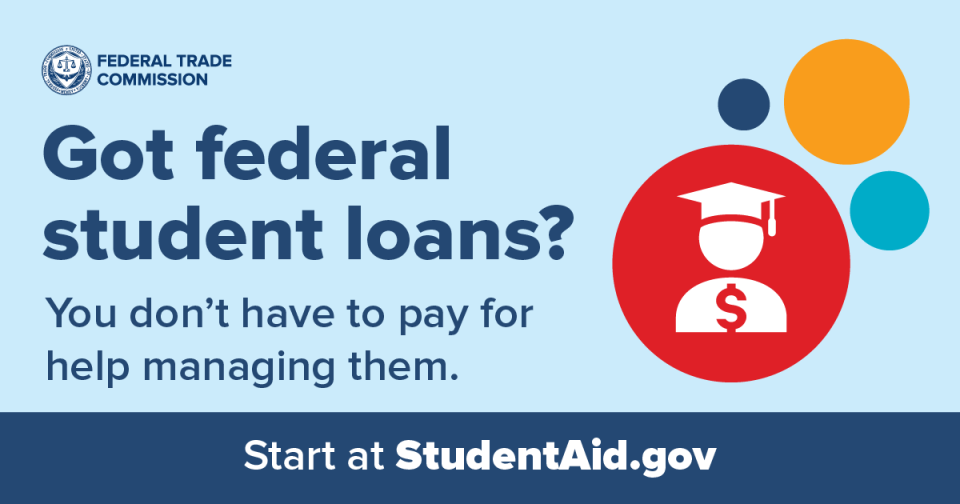If you have federal student loans, you’ve probably heard about the Supreme Court decision and know that repayments are restarting in October. But you might also be hearing from scammers who take advantage of confusion around big news like this. So how will you know what’s real and what’s a scam?
It’ll help to start getting ready for repayment now. Here are some first steps:
- Find out who your loan servicer is. They’re listed on your Federal Student Aid (FSA) account dashboard.
- Update your contact information with FSA and your loan servicers. This way, you’ll get timely updates about your repayment plans.
- Enroll in a repayment plan. Use FSA’s Loan Simulator to estimate your monthly payments and compare your repayment options. If you’ve defaulted on your loans, Look into the Fresh Start program.
If you’re worried about repaying your loans, the offers to “help” can be tempting. Scammers are likely to start blasting out robocalls and texts about “helping” you with your loans. So, before you act, know how to spot the scams:
- Never pay for help with your student loans. There’s nothing a company can do that you can’t do yourself for free. Get help at StudentAid.gov/repay. If your loans are private, go directly to your loan servicer.
- Don’t give away your FSA ID login information. Anyone who says they need it to help you is a scammer. If you share it, the scammer can cut off contact between you and your servicer — and even steal your identity.
- Don’t trust anyone who contacts you promising debt relief or loan forgiveness, even if they say they're affiliated with the Department of Education. Scammers try to look real, with official-looking names, seals, and logos. They promise special access to repayment plans or forgiveness options — which don’t exist. If you’re tempted, slow down, hang up, and log into your student loan account to review your options.
If you spot a scam, the FTC wants to hear about it. Report it at ReportFraud.ftc.gov.


You borrowed the money, you pay back the money, it is that simple.
There are a lot of scammers who scam many students.
Helpful and Thanks.
From,
UniverseCover